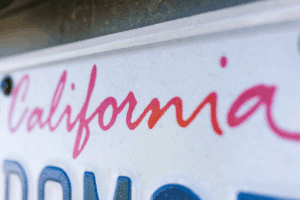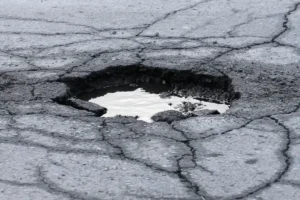California Motorcycle Laws: What You Need to Know
- Riders under 21 must hold a motorcycle instruction permit for six months, complete driver’s education, submit application DL44 or DL44C, provide a DL 389 certificate, pass knowledge, skills, and vision exams, and pay fees.
- Riders over 21 need to complete an application, pass knowledge and skills tests, have their fingerprints taken, pass a vision exam, and pay fees.
- To register a motorcycle in California, you must show the title or lien, provide proof of insurance, present a valid motorcycle license, and pay associated fees.
- California law mandates DOT-approved helmets for riders and passengers.
- There are requirements for handlebar and seat heights.
- Lane splitting is legal in California,
Requirements for Receiving a Motorcycle License in California
California has strict requirements that motorcyclists must follow to get a motorcycle license.
Riders Under 21
Riders under 21 who wish to acquire a California motorcycle license must:
- Have a motorcycle instruction permit for at least six months before applying for a license
- Complete driver’s education, including a behind-the-wheel training certification
- Submit driver’s license or identification card application DL44 or DL44C
- Provide the certificate of completion for motorcycle training DL 389
- Pass a knowledge, skills, and vision exam
- Have an official photograph taken
- Complete fingerprinting
- Pay the required fees
The state of California recommends that motorcyclists over 21 complete driver’s education and behind-the-wheel training. However, it is not an official requirement for licensing. The requirements for riders over 21 are:
- Complete a driver license or identification card application
- Pass the knowledge and skills test
- Have their fingerprints taken
- Pass a vision exam
- Pay required fees
Riders Under 18
Riders under 18 must fulfill all of the same requirements and obtain a signature from a parent or guardian indicating that they are approved to drive a motorcycle.
Types of Motorcycle Licenses
In addition, there are three types of licenses in California:
- Class C licenses apply to regular motor vehicles and do not allow someone to operate a motorcycle.
- Class M1 license holders can drive a motorcycle in addition to other single-passenger vehicles.
- Class M2 licenses allow individuals to operate vehicles like motorized scooters and motorized bicycles, but not motorcycles.
California Requirements for Motorcycle Registration and Insurance
To register a motorcycle in California, you must do the following at the DMV:
Show the California Certificate of Title for the motorcycle or lien information if you took out a loan to purchase the vehicle
Provide proof of insurance—minimum requirements for motorcycle insurance in California are:
- $15,000 in bodily injury protection for each person
- $30,000 in bodily injury protection for all persons
- $5,000 in property damage coverage
Present a valid California motorcycle license
Pay all fees associated with motorcycle registration, which may vary across counties
Motorcycle riders in California are not required to complete a smog check before registration.
California Motorcycle Laws for Helmets and Safety Equipment
California Vehicle Code includes several safety requirements to help motorcyclists stay safe while riding. A motorcyclist who fails to follow these regulations may face fines and fees. Riders must ensure that they meet the following requirements:
Helmet Use: CVC § 27803 requires motorcycle riders and passengers to wear a DOT-approved helmet to reduce severe injuries.
Handlebars and Seats: CVC § 27801 requires handlebars and seats to be at a comfortable height for the rider to ensure they have control of the vehicle.
Turn Signals: CVC § 24951 requires a motorcycle to have turn signals that “clearly indicate the intention to turn either to the right or to the left.”
Mirrors: CVC § 26709 requires all motorcycles to have at least one operational mirror on the vehicle to improve visibility.
Headlights: CVC § 25650 requires any motorcycle driven at night to have at least one operational headlight.
Horn: CVC § 27000 requires all motorcycles to have a horn that is in good working order.
Tail Lights: CVC § 24253 requires that motorcycles have tail lights that will stay on for at least a quarter-hour, even if the engine is off.
Is lane splitting legal in California?
Yes. California is one of the few states where lane splitting, or driving between two lanes of traffic, is legal. Driving in this manner has the potential to be very dangerous. As a result, CVC § 21658.1 gives the California Highway Patrol the power to develop educational guidelines that establish how drivers can safely lane split to avoid injury to themselves and other drivers.
California Motorcycle Passenger Laws
CVC § 27800 states that California motorcyclists must have an additional seat if they plan to ride with a passenger. In addition, passengers also need to have footrests, which they must use while the vehicle is in motion. The law also allows for passengers to ride in a sidecar.
The Motorcycle Accident Lawyers at Cutter Law P.C Can Help After a Crash
Although California has several safety laws to help motorcycle riders stay safe, motorcycle accidents can still occur. When a motorcycle crash does happen, riders often suffer severe injuries due to the lack of protection from other vehicles and road hazards.
If you have been hurt in a motorcycle accident in California, the legal team at Cutter Law P.C. may be able to help. Call or contact us today for a free case review to learn more about your options.

Drivers who break the law, violate safety statutes, or contribute to motor vehicle accidents can have these points assigned to their driver’s license.

After a car accident in California, you can file a claim by gathering evidence, contacting your insurer, and ensuring all necessary documentation is provided to support your case.

Yes, you can sue a government entity for poor road conditions if they fail to maintain the road safely, leading to an accident and injury, but you must meet strict deadlines and prove negligence.
